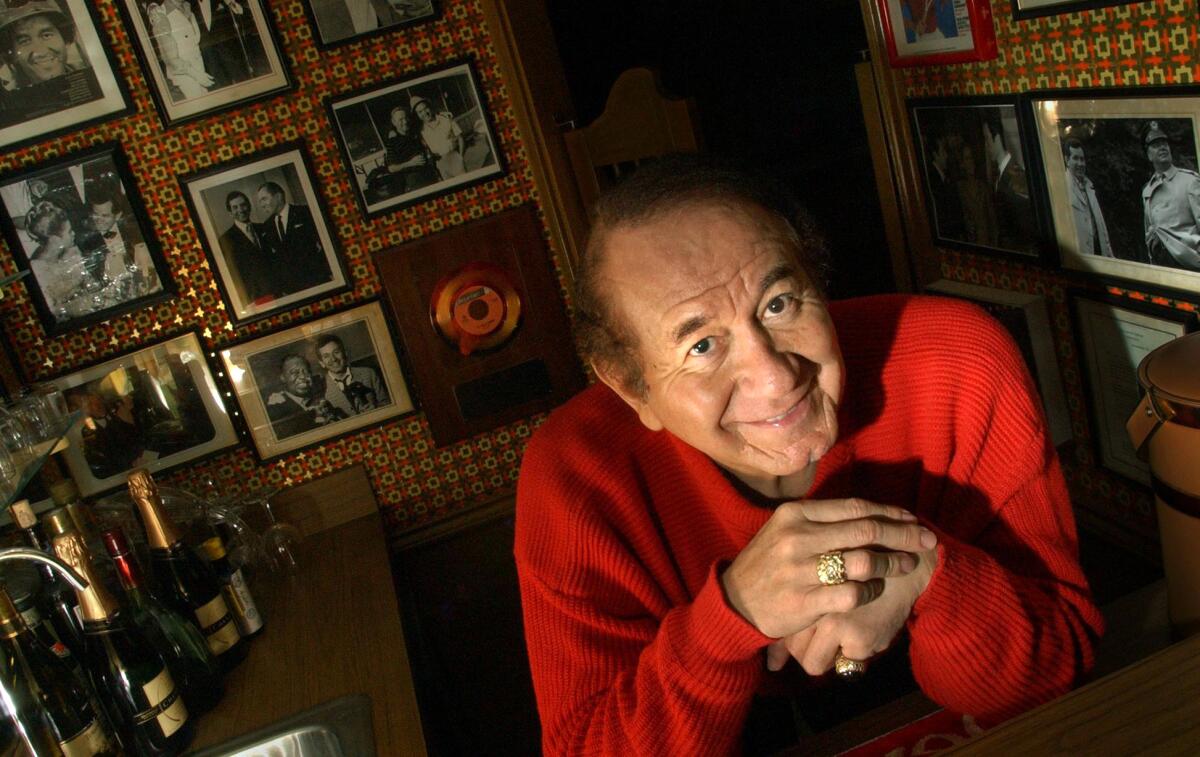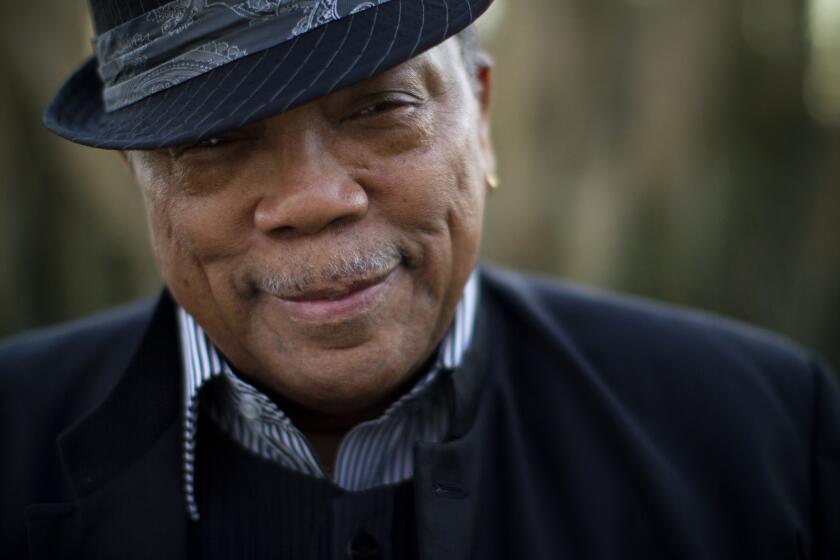Trini Lopez, Mexican American singer mentored by Sinatra, dies from COVID-19 at 83

Trini Lopez, a singer and guitarist who gained fame for his versions of “Lemon Tree” and “If I Had a Hammer” in the 1960s and took his talents to Hollywood, died Tuesday. He was 83.
Filmmaker P. David Ebersole, who just finished shooting a documentary on Lopez with Todd Hughes, confirmed that Lopez died from complications of COVID-19 at Desert Regional Medical Center in Palm Springs.
Mentored by Buddy Holly and Frank Sinatra, Lopez became an international star while performing in English and Spanish. Unlike Mexican American singers such as Ritchie Valens, Lopez rejected advice to change his name and openly embraced his Mexican American heritage despite warnings it would hurt his career.
“I insisted on keeping my name Lopez,” he told the Dallas Morning News in 2017. “I’m proud to be a Lopez. I’m proud to be a Mexicano.”

Sinatra signed Lopez to his Reprise Records label after seeing him perform at a West Hollywood nightclub. They became friends and were spotted together regularly in social circles in Las Vegas and Palm Springs.
Lopez also appeared in the film classic “The Dirty Dozen” and the comedy “The Phynx.”
Sales of Phil Collins’ 1981 hit “In the Air Tonight” spiked by more than 1,000% after last week’s reaction video by YouTube stars Tim and Fred Williams.
Born Trinidad Lopez III to immigrants from Guanajuato, Mexico, Lopez grew up in Dallas’ poor Little Mexico neighborhood. The family’s dire economic situation forced Lopez to drop out of high school and work.
His life changed after his father bought him a $12 black Gibson acoustic guitar from a pawn shop. His father taught him to play the instrument, which led the young Lopez to perform at Dallas nightclubs that didn’t allow Mexican American patrons.
Buddy Holly saw Lopez at a small nightclub in Wichita Falls, Texas, and introduced him to Norman Petty, his record producer in Clovis, N.M. Holly died in a plane crash six months later, and Lopez briefly replaced him as lead singer of the Crickets.
Lopez moved to Southern California and got a regular gig at P.J.’s Night Club in West Hollywood. Sinatra saw him perform and offered him a contract with his new record label, Reprise, where Lopez got his first major hit with “If I Had a Hammer.” It went to No. 1 in nearly 40 countries.
He later helped develop a string of original Gibson Trini Lopez signature guitars from 1964 to 1971.
Ebersole and Hughes recently finished shooting a documentary on Lopez called “My Name Is Lopez.”
More to Read
The biggest entertainment stories
Get our big stories about Hollywood, film, television, music, arts, culture and more right in your inbox as soon as they publish.
You may occasionally receive promotional content from the Los Angeles Times.










